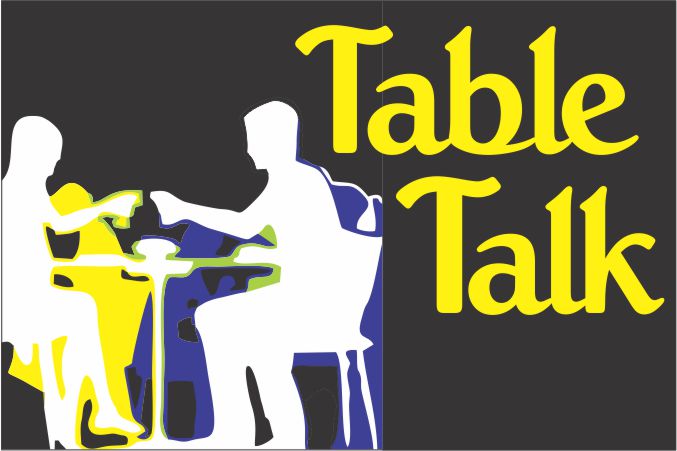
5 minute read
Grab a Coffee, Make a Difference
BY FRANCESCA PACCHIANO
The winding road out to Cedar is beautiful this time of year, and COCO Cafe is the perfect destination. Tucked beside the Country Grocer, the cafe welcomes everyone who stops in with the smell of dark roasted coffee and freshly baked goods.
This cheerful cafe is more than your average place for a cup of joe. COCO Cafe is a social enterprise where 73 per cent of the people employed there have varying forms of ability. It was started twelve years ago by a group of parents who wanted their adult children with diverse abilities to have an opportunity to work and impact the community around them in a positive way.
“We just felt blessed that he had an opportunity to develop himself socially and develop some skills, useful skills, that translated into great home skills as well, being able to make his own breakfast and developing some independence,” said Deborah Cooper, a board of directors’ member for the cafe, about her son, Jacob, who has Down syndrome and works at the cafe.
In July, Jacob spent the day at the Cedar Hall business showcase, serving up cups of his specialty iced coffee: Brauck’s Brew. “I’m a Justin Bieber fan and he has ‘Biebs brew,’ so I wanted my own and made Brauck’s brew,” Jacob said about his creation, but quickly added, “It’s a secret recipe.” While he’s not sharing any of the secrets, Jacob would be happy to make you one at the cafe.
The food served at the cafe is intentionally made in-house in order to help build the skill levels of the supported team, but it also allows for better flavour and quality in the food. Marc Tashereau, executive director for the cafe, said, “We lean heavily into the fact that almost everything here is made from scratch. We don’t buy commercially cut potatoes. We don’t buy pre-processed most anything. It’s cheaper to go with commercially available sauces, but it doesn’t give the same flavours and it doesn’t give the same experience.”

The choice to make food in-house helps develop independence and confidence in the people working in the cafe, but they are also working to support that growth with people who don’t work in the cafe. Tashereau spoke about the development of a meal kit line the cafe is implementing. “The meal kits are designed for people of various skill levels. You’ll have kits where the meats are already cooked; they need to be more warmed. … And then we’ll have ones [for] people with moderate ability where they have to cook the meat, a little bit more slicing and dicing to practice those skills.” These meal kits will be of a lower cost than other commercially available options and will be distributed through community resources.
COCO cafe has experienced incredible growth this year. “Our organic growth has been higher than we had projected. … It’s over 40 per cent for the year,” Tashereau said. But despite the growth, the cafe has still had its share of challenges. The cafe relies heavily on charitable donations in order to keep it in operation. The equipment is in “desperate need of replacement,” said Cooper, but the cost is too much for them to fund on their own.
The foodservice industry in Canada is currently in a recession and reports from Restaurants Canada say that half of companies are operating at a loss or breaking even. “It’s a tough industry on a good day,” Tashereau said. “To do what we do, and fund supported hours, we have to be better.”
“Being better” is a stance that Tashereau and the cafe take not only financially but also with the people who work at COCO. “One in four Canadians is a person [with] a disability. One in two people who are unhoused is a person [with] a disability. One of the best things that we can do to affect our communities is to give those people resources to help themselves.”
This decision of betterment is shown through the actions the cafe takes to support its employees. This looks like strategically working with organizations to develop technology that helps support how the team members’ work. “One of our team members doesn’t read, and we worked with CanAssist over several months and developed a tool that, using an iPad, reads the order off the ticket into a headset and tells them what beverage to make so they can function as a barista, even though they can’t read the order tickets. And it’s developing tools like that that will make them employable in the broader job market.”
COCO Cafe is working to change the societal perception of people with diverse abilities. There are challenges that come with supported individuals, but Tashereau repeatedly noted that there is so much joy working with them. “What we’re trying to do is move the needle in a larger way. To show that there’s a lot more potential than maybe people realize. And that maybe as a society, we need to stop setting limits on people [and] help them discover what they’re capable of rather than making that assumption.”
Jacob said that he enjoys chatting with the customers and learning new things, but most of all, working at the cafe helps him grow. “It is important for me to work at the cafe because I learn how to cook and make money. It helps me for my future.”
The cafe is a lovely place to grab a coffee or go for lunch with a friend. Both Cooper and Tashereau encourage anyone to come for a visit or make a donation. “There’s a lot more need out there, and there’s a lot of people capable of more and they deserve the opportunity.”
For more information, go to cococafe.ca.





